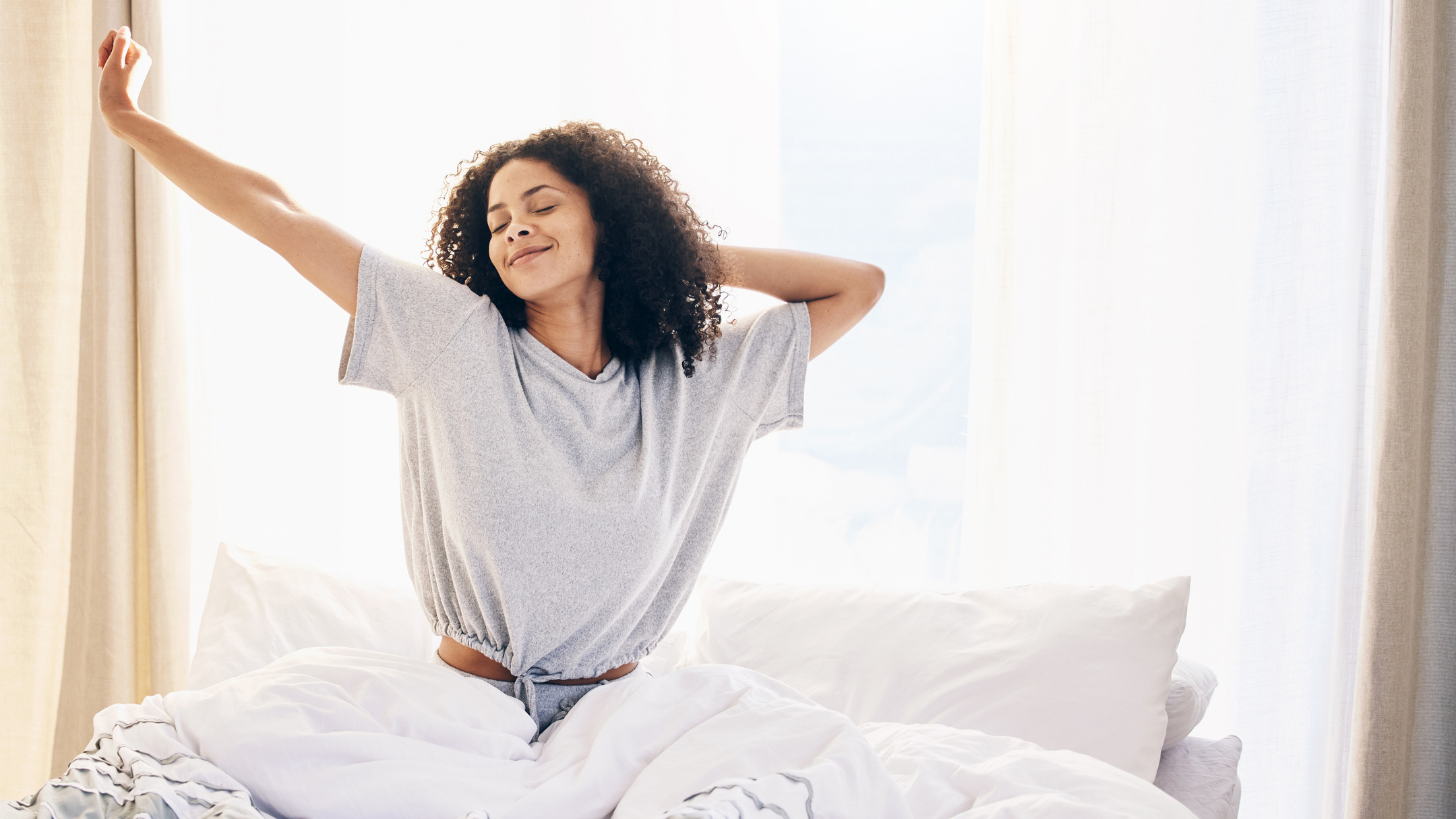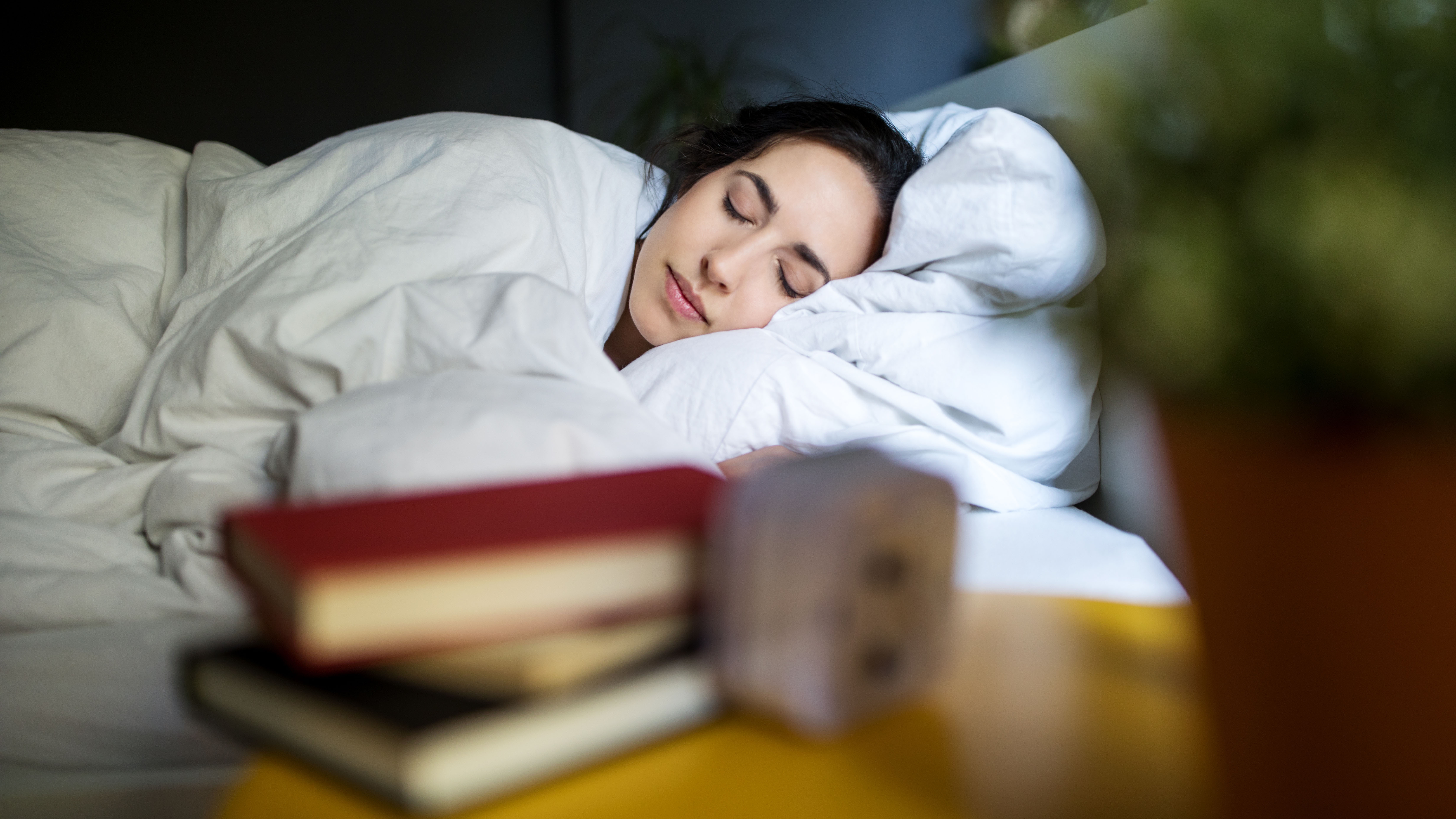How to get up earlier — 5 tips to fix your sleep schedule fast
Want to know how to get up earlier and not feel tired? These top tips will get your sleep schedule on track fast

Learning how to get up earlier than you do right now can be tough if you're not a morning person. Some of us can find early mornings tough thanks to a range of factors such as a busy schedule and even our DNA. But thankfully there is a way to fix your sleep schedule fast, become an early riser and actually enjoy it.
In fact, in just six days you'll be waking up two hours earlier than you do right now. Before you know it, you'll be thriving on your early morning wake-ups, feeling energized and raring to go.
So if you're already sleeping on the best mattress for your body and you've ruled out a sleep disorder as the cause of your late starts, there are six simple steps you can take to fix your sleep schedule and learn how to get up earlier. Here's how to do it...
Key benefits of getting up earlier
- Improved mental health
- Lower risk of heart disease
- Better concentration
While staying up to binge-watch a new show or sleeping in on the weekend are both very tempting, it could do more harm than good. New research has found that those who go to bed later are more likely to suffer from poor mental health, while those who go to bed earlier and get up earlier have better mental wellness.
A 2021 study also found that people who go to bed between 10pm and 11pm have a lower risk of heart disease, while another study found that waking up early improves mood, concentration and weight.
How to get up earlier: A step by step guide
1. Shift bedtime back by 20 minutes a night
Learning how to get up earlier means first learning how to go to bed earlier. If the thought of going to bed a couple of hours earlier than you normally do sounds daunting, don't worry – it's a gradual process.

When we spoke to leading sleep expert and chartered psychologist Dr Lindsay Browning (of leading sleep clinic Trouble Sleeping) about how to fix your sleep schedule, she recommended a phased approach. "Shifting your sleep by 20 minutes a day is easily doable and has no negative effects whatsoever.”
Get instant access to breaking news, the hottest reviews, great deals and helpful tips.
For example, if you currently go to bed at 12am, adjust your bedtime to 11.40pm on Night One. One Night Two, go to bed at 11.20pm. By Night Six, you should be hitting the hay two hours earlier than you were at the start of the week.
2. Shift your wake time forward 20 minutes a day
As soon as you start shifting your bedtime back by 20 minutes, you need to shift your wake-up time forward by 20 minutes. This step is crucial because if you don’t wake up earlier and get out of bed immediately, you won’t feel tired when you want to fall asleep earlier at night.
By adjusting your sleep schedule in 20 minute increments like this, getting up earlier and earlier each day won't feel so hard. You can also start to implement little tricks to help you feel energized when getting up earlier, such as opening your curtains wide straight away to flood your bedroom with natural light. This is a clear message to your circadian rhythm that it's time to be awake and crack on with the day.
3. Adjust your mealtimes too
As you begin adjusting your bedtimes and wake-up times in 20 minute increments, adjust your mealtimes too. Eat your breakfast 20 minutes earlier, your lunch 20 minutes earlier, and your dinner 20 minutes earlier each day.
Again, this helps strengthen your circadian rhythm and it ensures you aren't too famished when getting up earlier nor eating too close to bedtime at night.

Studies show that eating close to bedtime can worsen issues such as acid reflux, indigestion and heartburn. That's because the digestive process and stomach acids can’t function as effectively when your body is horizontal. Instead follow the 10-3-2-1 sleep rule and stop eating and drinking at least three hours before bedtime.
4. Get plenty of natural sunlight
Now that summer has arrived and mornings are brighter, you can finally get a big dose of bright sunshine each morning. Exposure to sunlight is a key component when learning how to get up earlier and fixing your sleep schedule, so open those curtains wide as soon as you open your eyes and get out of bed.
Research has found that our circadian rhythm relies primarily on light to know that its daytime, while other studies have found that cortisol (a hormone that controls our alertness) is more intense when exposed to light.
5. Establish a morning routine
Adjusting your sleep schedule and getting up earlier comes down to consistency. As with your night-time routine (creating habits that help prepare your body for sleep), creating a consistent morning routine will help you acclimatise quickly to getting up earlier and earlier.

Your morning routine could involve drinking a glass of water as soon as you wake up (which according to research can make you feel more alert and focused), then throwing the curtains open wide.
Another top tip according to recent research is to take a morning shower, finishing up with a 30 to 90-second shot of cold water which has been found to boost energy levels.
- Read more: Why you should join the 5am club and how to do it without losing sleep, according to a doctor
Why is getting up earlier harder for some people?
There are lots of reasons why some people find mornings hard, and they usually involve a person's schedule. A busy work or study timetable, parenting commitments, and a jam-packed social calendar can mean going to bed much later. A late night can followed by an early alarm can mean waking up to that groggy feeling called sleep inertia, and it can last up to two hours.
While a busy timetable can be to blame for not being a morning person, you could be finding early mornings difficult due to your biological disposition. Basically, the way your circadian rhythm (i.e. our biological clock) may operate differently to another person's.
Anyone who fits the bear, dolphin or wolf chronotypes may find learning how to get up earlier more challenging
This difference is because we all have one of four chronotypes. Paediatric and Adult Sleep Coach Kelly Murray goes into more detail about this in our guide to the four sleep chronotypes, but the gist is that everyone has their own natural sleep timing or "chronotype" that dictates when you feel sleepy and awake.
These chronotypes are named after animals, and you can find out which one you are by looking at your sleep schedule. A morning person, for example, fits the lion sleep chronotype. However, anyone who fits the bear, dolphin or wolf chronotypes may find learning how to get up earlier more challenging.
That doesn't mean you can't do it, but it will take more energy and commitment from you compared to someone born to be an early riser.

Frances Daniels is a PPA-accredited journalist and Sleep Staff Writer at Tom's Guide with an MA in Magazine Journalism from Cardiff University. Her role includes covering mattress and sleep news and writing sleep product reviews and buyer's guides, including our Best Hybrid Mattress 2025 guide. She is interested in the relationship between sleep and health, interviewing an array of experts to create in-depth articles about topics such as nutrition, sleep disorders, sleep hygiene, and mattress care. She is also our specialist on mattress toppers — producing bed topper reviews and taking care of our Best Mattress Toppers 2025 guide — and leads content relating to fiberglass-free beds for a non-toxic sleep. Outside of Tom's Guide, she has written for Ideal Home and Marie Claire.
 Club Benefits
Club Benefits





